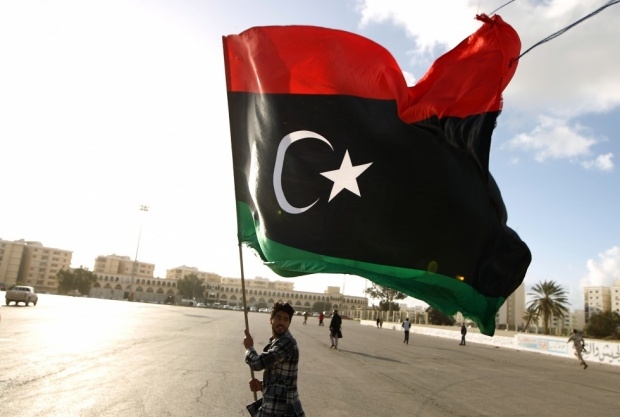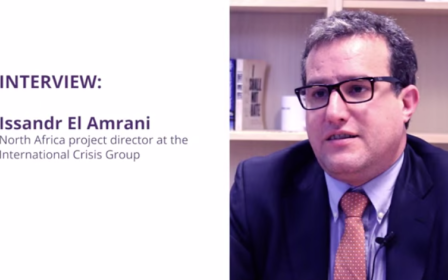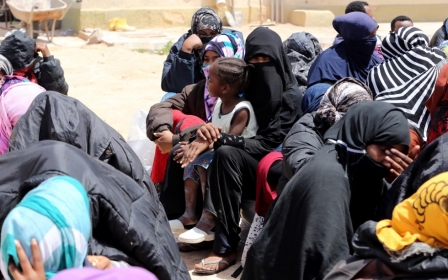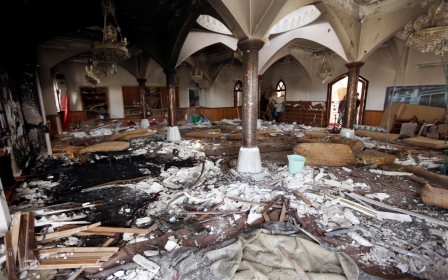ICC to investigate IS crimes in Libya: Prosecutor

UNITED NATIONS - The chief prosecutor of the International Criminal Court (ICC) on Tuesday told the UN Security Council she was ready to investigate crimes committed by the Islamic State (IS) in Libya, where the UN is pushing for a peace deal.
Fatou Bensouda told the council that the court's jurisdiction "extends to such alleged crimes" by militant groups aligned with IS.
IS fighters have claimed responsiblity for the beheadings in Libya of 21 Coptic Christians mostly from Egypt in February and 28 Ethiopian Christians in April.
International alarm over IS's expansion into Libya after Syria and Iraq has prompted the United Nations to redouble efforts to broker a deal in Libya on a national unity government able to confront the group.
Up until now, ICC investigations in Libya have mostly focused on crimes related to the regime of Moammar Gaddafi, who was ousted in an uprising in 2011. The court has charged Gaddafi's son Saif al-Islam and his intelligence chief Abdullah Senussi for crimes against humanity.
Human Rights Watch (HRW) earlier in the day released a statement calling on Bensouda to use the briefing to “speak out strongly against the state of impunity in the country”.
“The Security Council is watching Libya descend into chaos as horrendous crimes multiply,” said HRW’s Richard Dicker. “Given the Libyan authorities’ inability to rein in these abuses, much less prosecute those responsible, it’s time for the ICC prosecutor to expand her investigations.”
"Having voted unanimously to give the ICC a mandate in Libya, the Security Council should now step up to ensure the court has what it needs to look at ongoing grave abuses in the country,” Dicker said. “Focusing on Gaddafi-era officials is no longer sufficient.”
"It’s past time for the Security Council to understand that justice for current abuses in Libya will be essential for a durable peace … Silence by Security Council members on the impunity plaguing Libya today would be an affront to thousands of victims.”
The security situation in Libya has been tense since the overthrow of Gaddafi, but has deteriorated further since last summer when the former legislative authority in the country, the General National Congress (GNC), claimed that the election of a new authority, the House of Representatives (HoR) was illegitimate.
The GNC has refused to step down, and has held control of the capital Tripoli with the support of Islamist militants, as the internationally recognized HoR rules from the city of Tobruk in the northeast of the country.
On Monday, Issandr El Amrani, North Africa project director at the International Crisis Group, sat down with Middle East Eye to discuss difficulties in the on-going UN-brokered peace talks in Libya, the likely direction of the divided nation and the continuing conflict over the country's territory and resources.
“The reality is, on both sides in Libya, things are very, very fragmented, and you have powerful spoilers who are militarily dominant,” El Amrani said.
But, he added: “What the UN is doing is very good, because it keeps the political process alive.”
According to HRW, violence stemming from the armed conflict that has ensued has killed hundreds of people, including civilians, and displaced hundreds of thousands of Libyans.
The hostilities have also led to a rise in migrant trafficking, with rickety boats regularly departing Libya for Europe across the treacherous Mediterranean.
HoR warns against ‘threats’ to its authority
Meanwhile, Libya's internationally recognised government warned countries on against sending vessels into its territorial waters without authorisation, after it attacked a Turkish-owned ship and killed a seaman at the weekend.
In a statement posted on Facebook, the government said other countries should "not attempt to undermine (Libya's) authority".
Libya's air force bombed a Turkish vessel on Sunday after it entered Libyan waters and headed for the coastal militant stronghold of Derna, according to a lawmaker from the country's internationally recognised parliament.
"The Turkish boat tried to enter Libyan territorial waters by force ... ignoring international norms and maritime regulations," the government said.
The GNC in Tripoli, however, issued a statement criticising "violent aggression" against the Turkish-owned ship.
The boat was "in international waters, 13 nautical miles off the coast of the town of Tobruk" in eastern Libya, Tripoli's foreign ministry said in a statement.
The UN mission in Libya also condemned the attack and called for a "thorough investigation" while urging "military actors in Libya ... to undertake all necessary measures to avoid targeting civilians".
Middle East Eye propose une couverture et une analyse indépendantes et incomparables du Moyen-Orient, de l’Afrique du Nord et d’autres régions du monde. Pour en savoir plus sur la reprise de ce contenu et les frais qui s’appliquent, veuillez remplir ce formulaire [en anglais]. Pour en savoir plus sur MEE, cliquez ici [en anglais].




